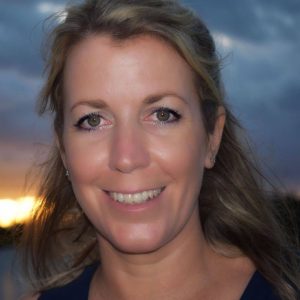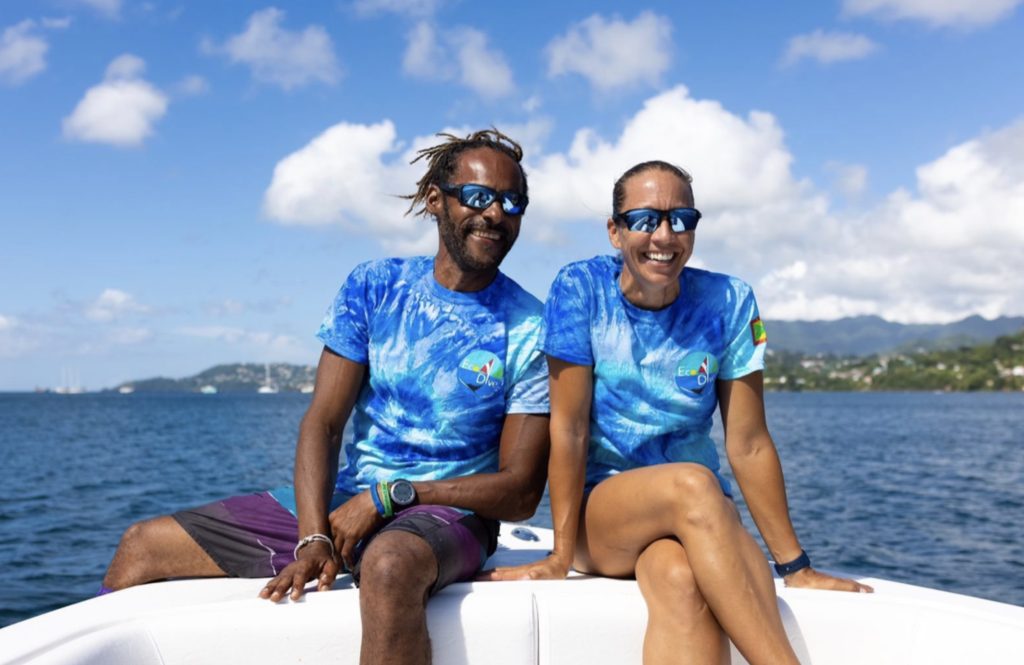
Reef Rescue Network Expands to Barbados and Grenada
The Perry Institute for Marine Science (PIMS) is proud to announce the expansion of our Reef Rescue Network (RRN) to two new countries in the Caribbean: Barbados and Grenada. Our newest partners, Barbados Blue and Eco Dive (Grenada), bring exceptional experience and local leadership to our growing coalition of coral conservationists.
Barbados Blue is owned and operated by Andre Miller, who also co-owns Eco Dive with Christine Finney, who runs operations in Grenada. We’re honoured to welcome both of them into the Reef Rescue Network, and we deeply value the local knowledge and dedication they bring to the fight for coral reef survival.
Meet the New Coral Champions
Andre Miller is a marine biologist, business owner, and dedicated environmentalist with over 22 years of experience. He serves as Director of Carib Marine Contracting and Research Inc. (CMCR) and leads marine research and diving operations across the region. Based in Barbados, Andre also serves as Owner, Director and Manager of the Barbados Blue Watersports Inc. and co-directs its sister company, Eco Dive. Both companies are internationally known for providing top-quality PADI scuba training which Andre believes is a powerful way to “open people’s eyes to the underwater world to help spread the word about its importance.”
Christine Finney is a hands-on marine biologist with a proven track record in science, community integration, skills training, and sustainable development of our environmental resources and community leadership in the Caribbean. She is a passionate environmentalist who serves as a Marine Biologist and Senior Research Diver for CMCR. Christine spearheads the organization’s major projects including coral reef assessments, biodiversity maps, coral disease surveys, water quality programming, and coral planting projects. Apart from her dedication to Carib Marine, she balances her time as co-owner and co-director of Eco Dive.
New Coral Nurseries Take Shape
RRN Director Hayley-Jo Carr and Senior Coral Restoration Specialist Alex Frans travelled to Barbados and Grenada at the end of April 2025 to establish new coral nurseries and provide training to local dive instructors in our Reef Rescue Experiences.
Both countries’ coral reefs have suffered greatly in the last couple of years from mass coral bleaching events, Stony Coral Tissue Loss Disease, and most recently the devastating impacts from Hurricane Beryl. Most coral species have seen a large decline in populations and the Acropid corals have all but disappeared from their shores. These newly established coral nurseries are a final attempt to save this important reef-building species.
In Barbados, a five-tree coral nursery was installed at 40 feet near the iconic Friars Craig shipwreck. This beautiful dive site, already dotted with reef balls encrusted in coral and rich marine life, now hosts fragments of critically endangered Acropora cervicornis (staghorn) and Acropora palmata (elkhorn) corals. At full capacity, the nursery will be growing 250 coral fragments, creating hope for reef-building species that have nearly vanished from these shores.
In Grenada, another five-tree nursery was established at 32 feet off Quarantine Point; a short trip from the dive shop situated on the beautiful Grand Anse Beach. Like Barbados, the nursery will focus on restoring staghorn and elkhorn corals—species essential for reef structure and marine biodiversity.
Building Capacity for Local Conservation
As a PADI Course Director, Hayley-Jo Carr was able to train and certify PADI Instructors at both locations in a variety of specialty courses linked to our Reef Rescue Experiences.
In Barbados, Hayley trained Aimee Ratchelous and Nicole Hill as PADI Reef Rescue, Sea Turtle Awareness & Shark Conservation Instructors, and Andre Miller and his son Ajhani Miller as Reef Rescue and Sea Turtle Awareness instructors. Ajhani is following in his father’s footsteps as a professional diving instructor passionate about protecting marine life.
In Grenada, Christine Finney and her instructors Hansel Thomas and Toby Trew were also trained as Reef Rescue and Sea Turtle Awareness instructors, with Hansel and Toby further completing the Shark Conservation instructor training.
Join Our Mission: Dive Into Coral Conservation
Both dive shops are now fully equipped to offer Reef Rescue Experiences, allowing visiting divers to gain hands-on knowledge about coral nurseries and become trained Reef Rescue Divers. These unique conservation dives include coral care, marine education, and simple lifestyle actions people can take to protect the ocean.
“After Hurricane Beryl damaged so much of our nurseries and also the outplanted and happy corals, it became clear that we needed to refine and expand our coral restoration works,” said Andre Miller, marine biologist and co-owner of both Barbados Blue and Eco Dive Grenada. “The Reef Rescue Network allows us to train a cadre of both local and visiting ‘coral gardeners’ who can help us with the cleaning of the nurseries, and once certified, help us outplant fragments to deeper coral reef frameworks. This course is essentially in keeping ahead of the global climate change-related impacts we are now facing in the Caribbean.”
Visitors to Barbados and Grenada can now directly support coral restoration by joining these unforgettable, science-based diving adventures.
- Barbados Blue heads out to their nursery every Tuesday
- Eco Dive (Grenada) offers trips every Thursday
Whether you’re a seasoned diver or a conservation enthusiast, this is your chance to make a difference for reefs and marine life.
Support Coral Restoration with the Reef Rescue Network
You can help restore coral reefs by:
- Participating in a Reef Rescue Experience at one of our partner locations
- Wearing our official merchandise
- Donating to the Reef Rescue Network
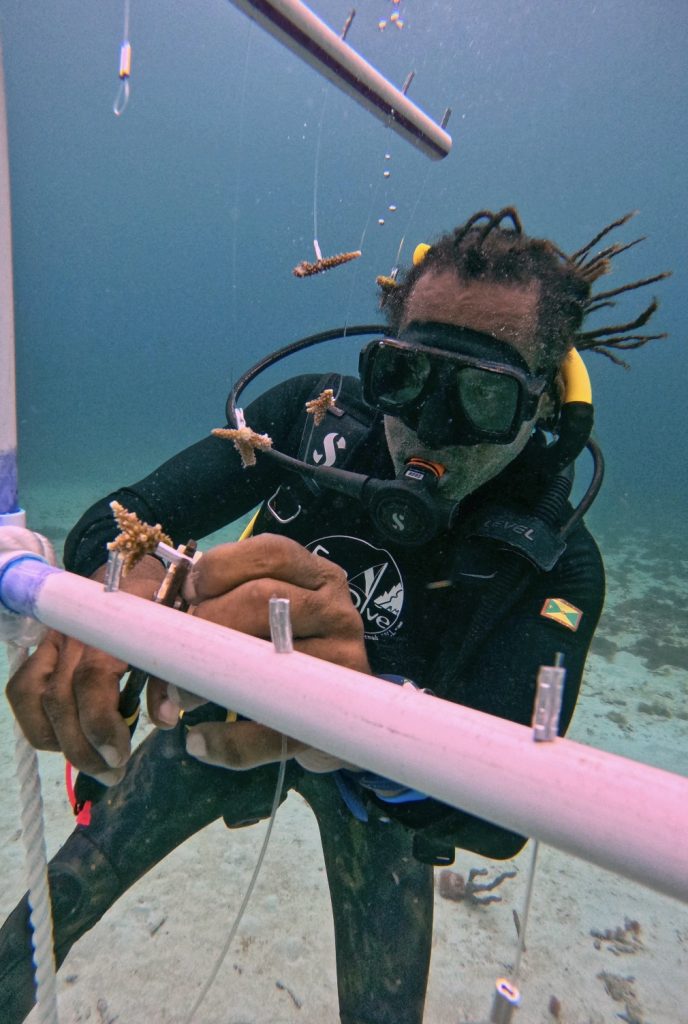
About the Perry Institute for Marine Science (PIMS)
For more than 50 years, Perry Institute for Marine Science (PIMS) has advanced ocean stewardship around the world. Guided by our vision “Thriving Seas, Empowered Communities,” our scientists pair cutting‑edge research with hands-on conservation to protect coral reefs, mangroves, fisheries, and coastal habitats while supporting sustainable livelihoods. We collaborate with governments, NGOs, schools, and forward‑thinking businesses to turn data into action—whether restoring reefs through our Reef Rescue Network, mapping coastal ecosystems with drone and photogrammetry technology, or training the next generation of marine leaders. By discovering solutions, creating opportunities, and inspiring action, PIMS works to ensure a healthy ocean for people and the planet alike. Learn more at www.perryinstitute.org.
Dive Deeper
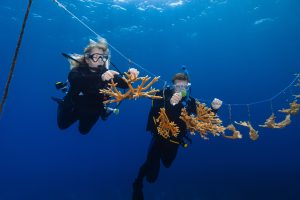
Stream2Sea Coral Care: The World’s First Reef-Positive Sunscreen
Stream2Sea Coral Care: The World’s First Reef-Positive Sunscreen | Perry Institute for Marine Science Conservation Partners Stream2Sea Coral Care: The World’s First Reef-Positive Sunscreen Discover why PIMS has partnered with

Build a Coral Reef for the Holidays | PIMS x Partanna
PIMS is partnering with Partanna to build a 100m² carbon-negative reef. Rick Fox is matching donations up to $25k. Help us build a sanctuary for the future.
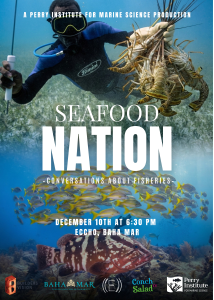
“Seafood Nation” Documentary Premiere Explores the Heart of Bahamian Culture and the Future of Fisheries
NASSAU, The Bahamas | December 5, 2025 – From the bustling stalls of Potter’s Cay to family kitchen tables across the archipelago, seafood is far more than just sustenance in
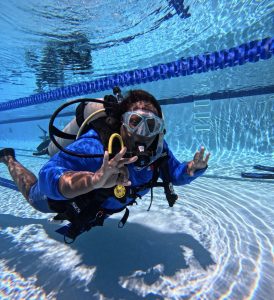
PIMS and Disney Conservation Fund Partner to Train 19 Government Divers
PIMS dive training in Nassau strengthened national coral restoration capacity across government agencies. Bahamas Dive Training Builds National Coral Restoration Capacity Last fall, between the months of September and October,
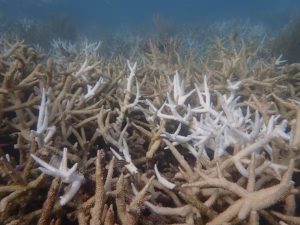
Florida’s Coral Reef Crossed a Line: What Functional Extinction Really Means for Elkhorn and Staghorn Corals
Reefs didn’t just bleach. They functionally vanished in one summer. A new Science study co-authored by researchers from the Perry Institute for Marine Science (PIMS) has found that Florida’s two
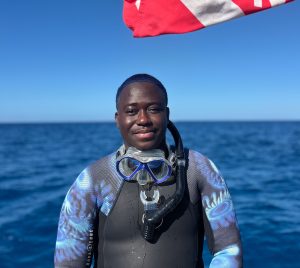
Q&A: Understanding the IDC Course at PIMS with Duran Mitchell
A former aquarist turned coral conservationist, Duran is passionate about understanding how all marine life connects. PIMS & IDC: Empowering New Dive Instructors for Marine Conservation PIMS & IDC: Empowering


